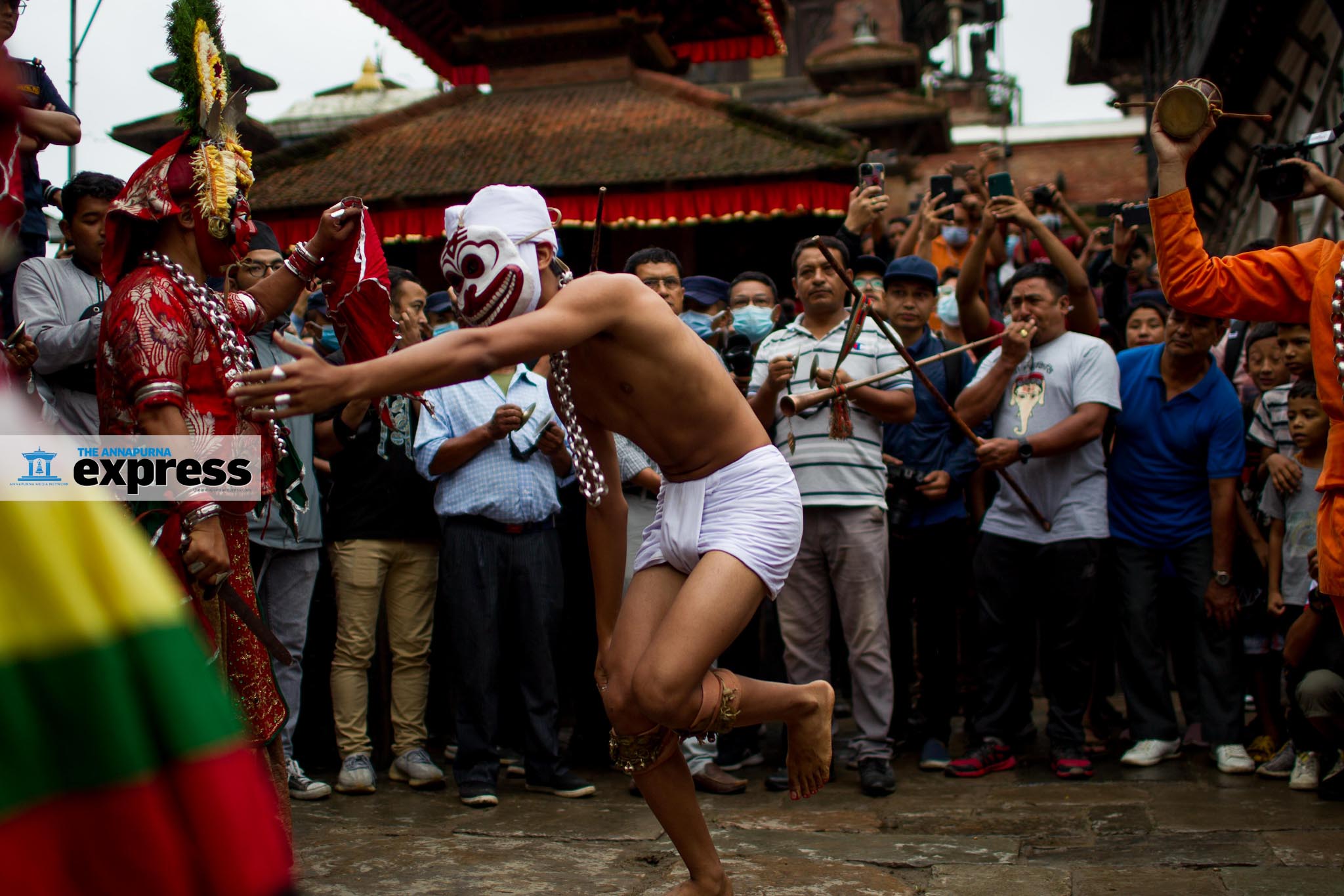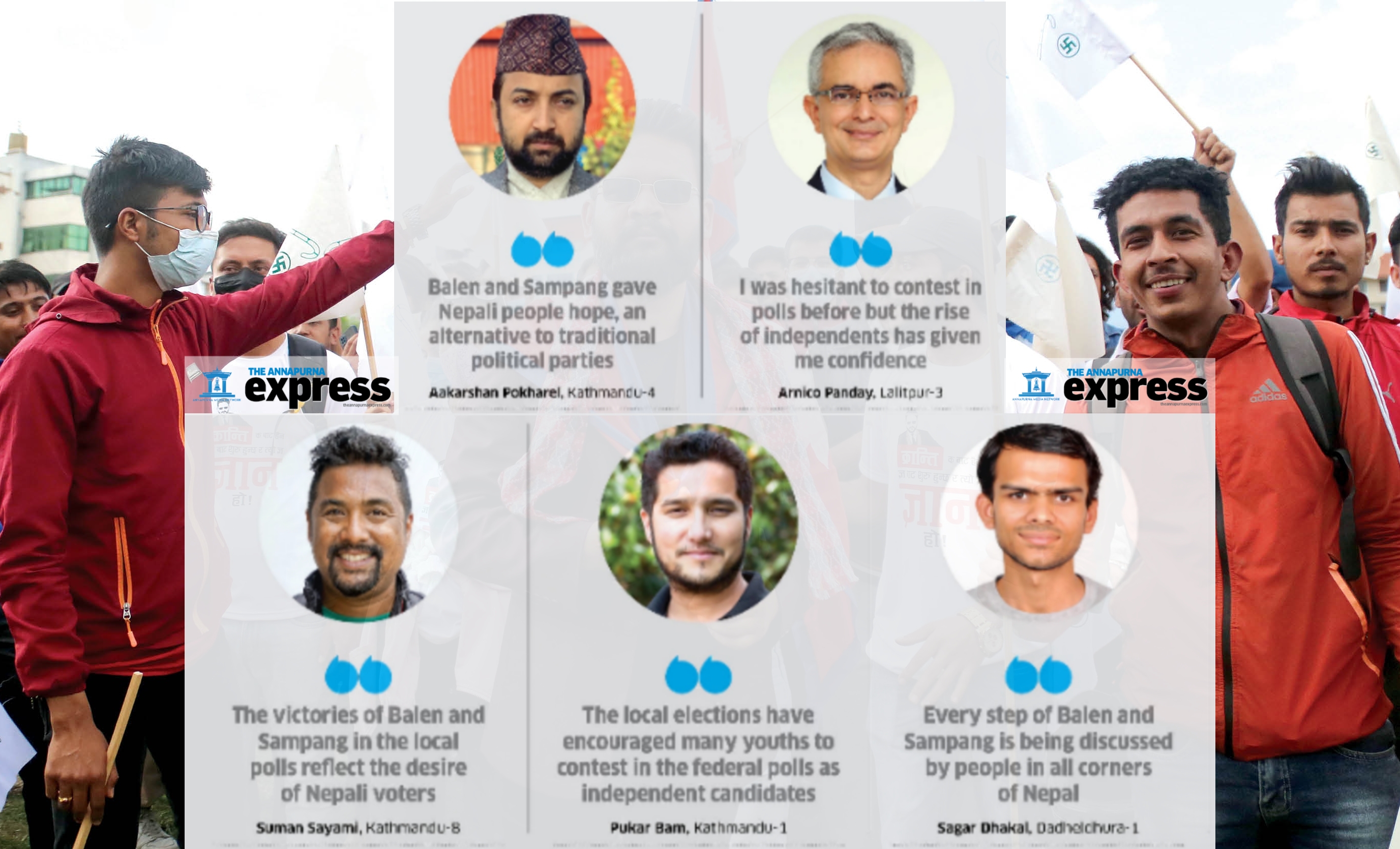Nepal’s drinking problem
The Indian state of Bihar banned the sales and consumption of alcohol in 2016. The ban was championed by local women to tackle issues of alcoholism and domestic violence. The punishments of being caught with alcohol were severe. Fines were high and you were also looking at a month in jail. Repeat offense meant a year behind bars. Nepal, which shares a 729-km border with Bihar, rushed to its help. On the Nepali side of the border, bars and restaurants sprung up where thirsty Indians could get their daily dose of alcohol. According to a report in The New York Times, men from all walks of life crossed the border to drink as much as they could before 9pm, which was when the police blew their shrill whistles and the shops had to close. “Alcohol is available everywhere in Nepal. From little corner shops to dazzling liquor stores, there are plenty of options to suit all kinds of wants and wallets,” says Sanjeev Kumar Shah, program coordinator at Sober Recovery and Rehabilitation Center (SRRC). In our society, any celebration calls for a drink or two. A hard day at work means indulging in some good Scotch (or local hooch) that night. If you are happy, you drink. If there is a problem you can’t handle, you drink. If you don’t drink at a party, you become an outlier. Everybody will ask you why you aren’t drinking and try to convince you to at least down a shot. According to Tsering Wangdu, founder of SRRC, alcohol is socially and culturally accepted and that in itself poses a problem in regulating its sales and consumption. In the Kirati and Gurung cultures, alcohol is sent to the bride’s family during marriage. The Tamang community has a ritual of offering alcohol to the deceased. Sherpas give it to new mothers and drink it to seal business deals. Likewise, the Newars brew alcohol on many important occasions. “Alcohol is addictive and drinking it under different pretexts will lead to addiction,” says Wangdu. Nepal has rules in place to regulate alcohol sales. Alcohol cannot be sold to those under 18. Liquor stores need licenses to operate, and there are restrictions in advertisements as well. Sales of homemade liquors like aila and chhyang is illegal. There is also a cap on how much of it can be produced a year. But the rules aren’t being followed. There’s an urgent need to make proper provisions regarding the manufacture and sales of alcohol in Nepal, says Tek Prasad Rai, spokesperson of the Nepal Police. Alcohol, he says, is a major cause of domestic and sexual violence, accidents, and many other crimes. Rai says there are many alcohol-related altercations and mishaps on a daily basis. They usually result in grave injuries and even deaths. As many cultures consider alcohol auspicious, it’s difficult for the police to even enforce the rules that are already in place, laments Rai. There have been instances when the police have tried to control the consumption of liquor in certain places. Their efforts have only led to furor among various communities that claimed the police tried to mock and reject traditional practices. According to a study, mortality by alcohol in Nepal increased by 376 percent between 1990 and 2016. The study also found that 21 percent males and 1.5 percent females in Nepal were habitual drinkers. A total of 3,972 Nepalis lost their lives in 2016 to liver diseases and cancer among other alcohol-induced ailments. Those working at rehabilitation centers, who have seen the impact alcohol has had on people’s health and relationships, agree the government must intervene and come up with stricter control measures. Some ways to control alcohol consumption could be putting health warnings on alcohol bottles, setting a 21-year age limit for alcohol purchase, regulating the time of alcohol sales, and imposing a ban on all kinds of alcohol ads and promotions. More importantly, there has to be a strict monitoring of alcohol sales to ensure adherence to rules. Shishir Thapa, founder of Cripa Nepal, says alcoholism is an escalating problem in the country. Despite their efforts, many of their patients relapse once they are out of the facility. Thapa says he has seen all kinds of people, from all sorts of backgrounds—from daily wage earners to reputed doctors—risk financial ruin or be estranged from their families because of their addiction. He adds that men are more likely to be alcoholics than women because of our patriarchal beliefs that allow men to do as they please. “Alcoholics are self-centered and incapable of rational thinking and empathy. They are unable to lead regular, normal lives,” says Thapa who believes alcoholism will hinder the nation’s growth besides driving many families into despair. Nepalis, Thapa adds, are at a high risk of alcohol abuse as it’s available everywhere and anyone can access it. There is also no oversight on who is selling alcohol and who is buying it. Many elderlies start drinking at the break of dawn. Their morning walks are quite literally powered by Johnny Walker or cheaper, local versions of the same. Chowks and parks not only sell tea but ‘raksi’ too, camouflaged as cold drinks in pet bottles. The government chooses to remain oblivious because of cultural associations of alcohol as well as the fact that regulating liquor will cut down on revenues. Should Nepal follow its neighbors’ footsteps and ban alcohol, like the governments in Gujarat, Bihar, Manipur, and Nagaland? Nischala Arjal, assistant professor at Kathmandu School of Law, says complete restrictions never yield the desired results. What’s important to regulate is how, when, and where alcohol is sold. That will stop regular drinkers from becoming habitual ones, she says. Thapa adds there needs to be wider awareness on the harmful effects of drinking. Wangdu agrees and says we can no longer afford to normalize the act of drinking. “The government shouldn’t turn a blind eye to this problem as the costs of alcohol dependance are just too high,” he says.
UML gears up to take on the five-party alliance
The CPN-UML has concluded that it should be ready to contest the Nov 20 elections to the federal parliament and provincial assemblies alone. Earlier, the main opposition had expected the five-party ruling coalition to break up, paving the way for a leftist alliance like in the 2017 elections. In a recently concluded Central Committee meeting of the UML, Chairman KP Sharma Oli said: “Now that there is no chance of a split in the five-party coalition, we have to launch a campaign to bring back our cadres from other parties.” He was talking about the party cadres who had defected to the breakaway party, CPN (Unified Socialist) led by Madhav Kumar Nepal. Dozens of Unified Socialist have returned to the mother party. The number is expected to increase as the election date draws closer. The UML’s principal strategy is to weaken the CPN (Maoist Center) and CPN (Unified Socialist)—major partners in the five-party ruling coalition led by the Nepali Congress (NC). Oli sees the two leftist parties’ allying with the Congress as a hindrance to his party’s electoral ambitions. The same alliance had wrested many UML seats in the local level polls this past May. Oli reckons the only way to preclude the five-party alliance from snatching up the UML’s constituencies is by weakening the Maoists and the Unified Socialist. In order to exhaust the five-party alliance, the UML may join hands with fringe forces in some of the constituencies, but there are no chances of large-scale alliance. UML general secretary Shankar Pokharel says the party is “investing no more time and energy to materialize electoral alliance” but there could be seat-sharing in some constituencies. While the five-party alliance is engaged in intense seat-sharing negotiations for the November polls, the UML has already hit the ground running. The party has formed a 151-member Central Election Mobilization Committee under Oli and plans to form a similar committee at the grassroots level. Oli also leads the committee mandated to prepare the party's election manifesto. The UML is in a similar situation that the NC was faced in 2017 when all communist parties banded together against the grand old democratic party. Though Oli has been telling the UML rank and file that the party would emerge the ultimate victor, the party leaders know they have to mount quite a battle. Some party leaders say it is a “do-or-die” matter. In the worst-case scenario, they fear, the UML will secure around 70 seats in the House of Representatives. Still, second-rung leaders in the UML including Ghanashyam Bhusal are willing to pull out all the stops to form a broader left alliance. He told the party’s Central Committee meeting recently that with a strong electoral alliance among the left forces, the party could win 150 out of the 165 first-past-the-post seats in the 275-member House. Bhusal is of the view that the UML and other major parties to the left of center should issue a white paper owning up to their past mistakes to regain voters’ trust. “Without the alliance,” says Bhusal, “the parties on the left are at risk of becoming the combined loser.” However, UML Chairman Oli is unwilling to make any compromise with Madhav Kumar Nepal of the Unified Socialist or Pushpa Kamal Dahal of the Maoist Center. He believes the wrangling over sharing of seats among the five-party alliance would downsize the strength of Congress, the UML’s main rival. In his political document, Oli has said that the party lacks only 16 percent seats to secure a parliament majority. Due to the electoral alliance among five parties, he believes the NC will likely contest for around 80 seats, triggering dissatisfaction inside the party and consequently, rival candidacy. Prime Minister Sher Bahadur Deuba’s rival faction in the Congress, led by Shekhar Koirala, could field separate candidates if it fails to get a respectable share in the elections. In that case, there could be an undeclared alliance in some constituencies between UML and the NC’s Koirala faction. Koirala and Oli held a long meeting about the elections only recently. There are fears of intra-party betrayal within the UML as well. A study conducted by the UML suggests that the party lost around 60 local government seats due to intra-party rift in the May 13 local polls. The UML is not as united as it appears to be. The leaders who opposed Oli’s move to dissolve parliament in 2020 have been alienated within the party. To placate the disaffected UML leaders and members, the party has launched a separate campaign to strengthen the organizational unity across the country. It has also decided to take strict measures to address the problem of rival candidates. UML says its popular votes stand at 34 percent, NC’s 33 percent and remaining parties hold 8-10 percent. Though Oli remains a popular leader within his party, his image among the voters has significantly declined. “There are obviously some challenges for the UML, as the party will be fighting against the five-party alliance,” says UML leader Deepak Prakash Bhatta. In 2018, Oli led a powerful government in the country’s modern political history but he was ousted from power by the Supreme Court order in 2021, following his attempt to dissolve the democratically elected parliament. Political analyst Bishnu Dahal says the UML is in a difficult position as it is pitted against the five-party alliance, which is expected to fare well in the elections. “The UML also does not have any saleable agenda like in the 2017 elections,” says Dahal. “The issues of nationalism and boundaries are not going to sway the voters this time.” He says the UML will essentially be competing for the second or third position with the Maoist Center. Only time will tell whether Oli’s gambit will pay off.
Mind Matters | Problems of a teenager
I’m a 17-year-old high-schooler, and I have been having a lot of misunderstandings with my parents. I feel like they don’t understand me or my point of view at all. I have so many restrictions. My friends don't have the same issues with their parents. I feel like my parents don't trust me at all. They don't even take some time to sit down and listen to what I’m saying or figure out how I’m feeling. To be very honest, I fear I’m starting to resent them, and I don't want to feel that way. What should I do?—A misunderstood teenager
Answered by Dristy Moktan, Psychosocial Counselor, Happy Minds
 Teenage years come with a lot of transitions—emotional, social and mental. When you are going through all of this, there is bound to be a certain level of misunderstanding between you and your parents.
One of the key ways to sort this out is by ensuring proper communication with your parents. You mentioned that you feel like they aren’t giving you enough time and that they don’t listen to what you are saying. Maybe you can take out some time from your schedule and initiate the conversation you want to have.
They were once teenagers too, so it’s likely they will understand what you are going through if you take the time to talk to them about it. If you are uncomfortable talking to both your parents, maybe you can talk to the one with whom you feel the most comfortable sharing your feelings.
No doubt it will be difficult at first. There will be issues with either of you not understanding the other’s point of view. But if both you and your parents try to put aside your own biases and are more open to the other’s ideas, then things will eventually work out.
If you still think they won’t listen to you, talk to someone you think they will listen to. Is there a family friend or a relative they are likely to listen to? Confide in her/him and maybe s/he can be the mediator you and your parents need.
Also, please take a moment to consider that this is a difficult phase for them too. They were so used to making decisions for you that your sudden need for independence can be jarring. It will take some getting used to and you will have to give them time for that.
As far as restrictions go, parents will always be protective, sometimes needlessly so. Try to come up with an arrangement that you are both comfortable with. For instance, if your parents don’t allow you to go out with your friends on the weekend because they want you to study at home, you can convince them to let you go if you study for a couple of hours extra during the weekdays.
Rest assured that you can find a way to do what you like as well as maintain a good relationship with your parents. It’s just about making some effort and a little bit of compromise.
Teenage years come with a lot of transitions—emotional, social and mental. When you are going through all of this, there is bound to be a certain level of misunderstanding between you and your parents.
One of the key ways to sort this out is by ensuring proper communication with your parents. You mentioned that you feel like they aren’t giving you enough time and that they don’t listen to what you are saying. Maybe you can take out some time from your schedule and initiate the conversation you want to have.
They were once teenagers too, so it’s likely they will understand what you are going through if you take the time to talk to them about it. If you are uncomfortable talking to both your parents, maybe you can talk to the one with whom you feel the most comfortable sharing your feelings.
No doubt it will be difficult at first. There will be issues with either of you not understanding the other’s point of view. But if both you and your parents try to put aside your own biases and are more open to the other’s ideas, then things will eventually work out.
If you still think they won’t listen to you, talk to someone you think they will listen to. Is there a family friend or a relative they are likely to listen to? Confide in her/him and maybe s/he can be the mediator you and your parents need.
Also, please take a moment to consider that this is a difficult phase for them too. They were so used to making decisions for you that your sudden need for independence can be jarring. It will take some getting used to and you will have to give them time for that.
As far as restrictions go, parents will always be protective, sometimes needlessly so. Try to come up with an arrangement that you are both comfortable with. For instance, if your parents don’t allow you to go out with your friends on the weekend because they want you to study at home, you can convince them to let you go if you study for a couple of hours extra during the weekdays.
Rest assured that you can find a way to do what you like as well as maintain a good relationship with your parents. It’s just about making some effort and a little bit of compromise.
Unregistered hospitals, pharmacies boom in Janakpur
When Chancla Devi went into labor in the middle of the night, she was rushed to Provincial Hospital in Janakpurdham, where she underwent a C-section surgery and gave birth to a baby boy. As the baby was sickly, the doctor suggested that he be kept in the Newborn Intensive Care Unit. “The NICU at the hospital was full at the time,” says Rabindra Sah, the baby’s father. “So Dr Abhaya Mandal told us to take the baby to Naina Hospital at Ramananda Chowk.” Naina Hospital is a privately run facility established by Dr Brijmohan Rajak, who also works at the Provincial Hospital, some 16 months ago. It is registered with the government. “It turned out, the hospital did not have an NICU, and the doctors lied to us,” says Sah, who hails from Sarlahi district. “Days after admitting my baby, they told us he did not survive.” Sah claims his newborn died because Dr Mandal referred his baby to a hospital that is being illegally operated. He says the doctors refused to refer the baby to a proper hospital despite his repeated requests. “They kept telling me that the baby was doing fine when he was not,” says Sah. “They killed my baby and then handed me a bill for Rs 32,000.” Dr Mandal refutes Sah’s allegation. “The baby had a heart condition,” he says. “We did our best to save him.” He did admit that he had referred the baby to Naina Hospital. He, however, says that he had no idea the hospital was not registered with the government. The hospital owner, Dr Rajak, says they are in the process of registering the hospital. There are dozens of unregistered hospitals and pharmacies in Janakpurdham, where people visit on a daily basis. Bijay Jha, director at the Health Directorate under the Social Development Ministry of Madhes Province, says though they don’t have the actual figure on the number of unregistered hospitals and pharmacies in the city, it could be close to 90 percent. “These are privately run facilities. We are still in the process of collecting their details,” says Jha. City Hospital, Nawajiwan Hospital, Tarai Rajdhani Hospital, Dhanusha Hospital and City Hospital Care Nursing Home are some of the hospitals based in Janakpurdham. Likewise, there are dozens of pharmacies and diagnostic centers close. The government has not recognized the majority of these facilities As per the law, to open a health facility with 25 beds or less, the operator must obtain a permit from the local government. The provincial government issues permits for hospitals with more than 25 beds. Saroj Mishra, a social activist in Janakpurdham, says most hospitals, pharmacies and pathology labs running in the city are illegal, and people in the medical profession themselves are behind them. “The government is not doing anything about this because those who own these facilities are politically connected,” he says. “Hospitals and pharmacies are being treated as profit-making businesses, which is unfortunate.”



















